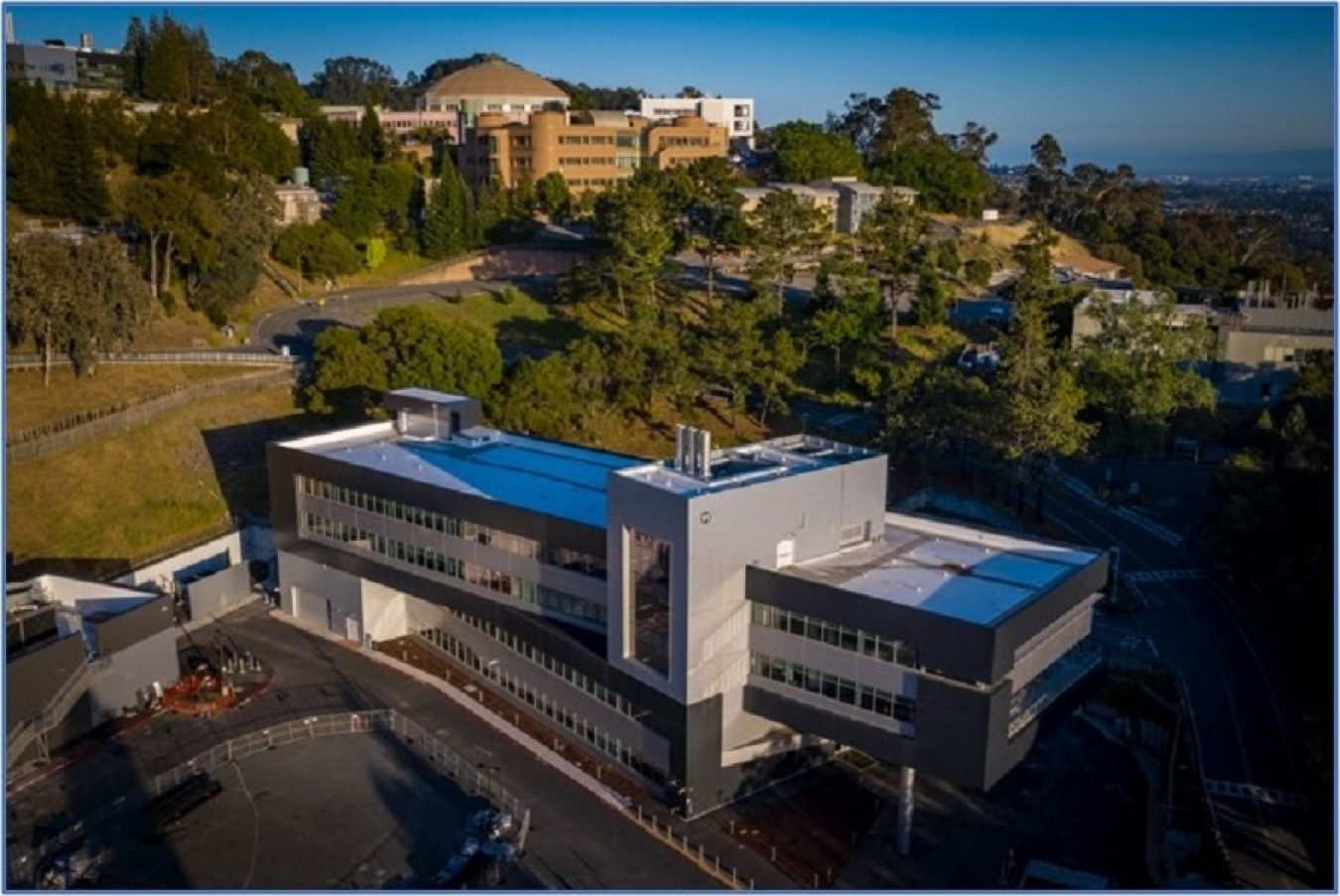
Figure 1: Aerial Photograph of the Integrated Genomics Building with the Advanced Light Source historic dome in the background. Photo credit: Thor Swift, Berkeley Lab
The U.S. Department of Energy (DOE) recognizes Lawrence Berkeley National Laboratory for achieving 50001 Ready recognition and subsequently attaining International Organization for Standardization (ISO) 50001 certification in 2020.
DOE’s 50001 Ready program provides no-cost tools and guidance for facilities to implement energy management systems that help lower energy use, cost, and emissions. The Department offers formal recognition when companies self-attest completion of the 50001 Ready Navigator tool, which provides step-by-step guidance to develop a tailored energy-management system that meets the ISO 50001 energy management standard.
Managing energy is fundamental to a facility’s efforts to manage its climate impacts. Improved energy efficiency translates into material efficiency, water efficiency, and less waste. At the national level, systematic energy management by industrial, institutional, and commercial facilities, many of which have very energy-intensive processes, is a fundamental step on the nation’s path to a clean energy future.
Launched in 2012, Berkeley Lab’s sustainability program aligns the Lab’s energy-management activities with the principles of the ISO 50001 and ISO 14001 standards, which covers energy and environmental management. The Lab’s experience with the 50001 Ready Navigator paved the way for its formal ISO certification only three months after it received 50001 Ready recognition. ISO certification represents a significant commitment to energy and water efficiency at Berkeley Lab.
The ISO 50001 certification audit praised Berkeley Lab for its focus on the nexus of energy and water management, as detailed in the Lab’s Energy and Water Management System manual. This document helps the Lab’s staff ensure that their activities are well integrated with the Lab’s operations. Establishing a culture of continuous energy improvement is key to successful implementation of an energy management system, as everyone in an organization has the potential to increase or decrease the amount of energy used.
Located in Berkeley, California, Berkeley Lab’s energy-management system covers 2.1 million square feet of built space and all activities that entail energy and water use (including high-performance computing) or affect energy and water performance (e.g., procurement). Founded in 1931, Berkeley Lab is associated with 13 Nobel prizes and is home to approximately 4,400 full-time employees, including 80 members of the National Academy of Sciences and 15 National Medal of Science awardees. The Lab also serves faculty and scholars, visiting scientists and engineers, and over 12,700 facility users.
Learn more about how Berkeley Lab improved its energy-management practice through 50001 Ready, which is managed by the Office of Energy Efficiency and Renewable Energy's Advanced Manufacturing Office.
